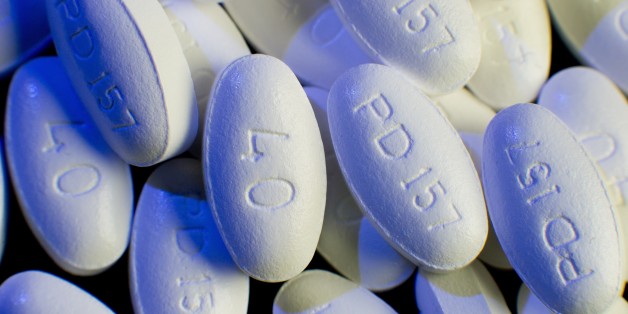
Cholesterol is a frequently used health term but do you know what it actually means or how it can affect you? Check out my series of quiz questions below – the answers may surprise you!
1) Where does cholesterol build-up inside the body?
a. The heart
b. The intestines
c. The blood vessels
The answer is c, inside the blood vessels. Doctors often compare the blood circulation as ‘plumbing’, with pipes representing the blood vessels. As cholesterol levels rise, they form a layer of plaque on the inside of these ‘pipes’, similar to areas of hard water when lime scale builds up.
a) Mona Lisa
b) Donald duck
c) Robin Hood
Iconic Mona Lisa was rumoured to be sporting tell-tale signs of high cholesterol – small skin-coloured lumps of fat deposits around her eyes known in the medical world as Xanthelasmas. As a noble member of 16th century Italian high society, it wouldn’t be unusual for her diet to be high in fatty foods such as rich meats and cheeses – ultimately leading to high cholesterol levels.
As a duck, Donald’s diet probably doesn’t consist of many foods high in saturated fats, since he probably doesn’t have access to pre-prepared ready meals and meats like we do now. Along with Mickey and Goofy, Donald seemed to spend a lot of time doing vigorous cardiovascular exercise while causing endless amounts of mischief.
Robin Hood was likely very active, robbing from the rich to give to the poor, which would have helped keep his cholesterol levels down. Back in those days, most foods didn’t contain saturated fats either, and diets consisted of far less meat than nowadays, leading to less risk of elevated cholesterol levels.
3) Some types of cholesterol are actually good for you?
a) True
b) False
The answer is true! Good cholesterol (HDL or high density lipoprotein) actually helps reduce levels of total cholesterol, by removing bad cholesterol (LDL, low density lipoprotein) and bringing it to the liver to be broken down. Total cholesterol is a measure of both good and bad, so for a more thorough assessment of your cholesterol levels, doctors usually perform more in-depth blood tests of both HDL and LDL levels, and calculate a ratio of good to bad.
4) High blood pressure leads to high cholesterol?
a) True
b) False
False. High blood pressure and high cholesterol often come hand-in-hand, as they’re both caused by similar unhealthy diets but high blood pressure does not directly cause high cholesterol. In fact, high cholesterol can lead to high blood pressure.
Imagine the body’s circulation as a piping system again: as cholesterol builds up inside the pipes, over time this gradually decreases the area through which fluids can flow. Therefore, in the case of the body’s circulation, if the volume of fluid flowing around these pipes stays the same, but there is space for this fluid to flow through, pressure inside the pipe will rise. Voila – high blood pressure, caused by high cholesterol!
5) You need to start thinking about cholesterol levels at what age?
a) 45+
b) 30+
c) From childhood
C – High cholesterol can affect anyone, regardless of their age! Children are at risk of having, particularly if it’s in their genes or their diet is rich in saturated fat!
6) If I had high cholesterol, I’d look and feel unhealthy?
a) True
b) False
The answer is absolutely false! High cholesterol is known as a ‘silent killer’ – as there are few outward signs of raised cholesterol levels but in some cases, people with high cholesterol may also develop small skin-coloured lumps around the corners of the eyelids, known as Xanthelasma. Surprisingly, even slim, healthy-looking people can suffer from high cholesterol levels.
7) People with high cholesterol should avoid eating?
a) Eggs
b) Cheeseburgers
c) Chicken
For anyone trying to reduce their cholesterol levels, cheeseburgers are definitely the worst! A Macdonald’s ‘Big Tasty’ burger (with bacon!), for example, contains 20g of saturated fats – an adult’s maximum daily intake! Chicken is best served as white meat without the skin, and eggs are fine in low to moderate levels.
8). What foods are high in ‘good cholesterol’?
a). Fruit
b). Vegetables
c). Nuts
The answer is all three! Foods such as grains, vegetables, fruits, legumes, nuts, and seeds contain a naturally occurring substance called plant-sterols and stanols, which have powerful cholesterol-lowering abilities.
This magic ingredient appears to block the absorption of cholesterol in the gut, reducing the amount of cholesterol that can enter the bloodstream. Consuming 1.5-2.5g plant sterols and stanols, through supplements, foods or margarines as part of a balanced diet, can help to reduce levels of bad cholesterol by around 10%!
High levels of cholesterol can cause serious health implications such as strokes, heart disease and aneurysms. If you’re worried and think you may be at risk, speak to your GP about the options.
High cholesterol can be determined with a simple blood test which is available atLondon Doctors Clinic.


Be the first to comment